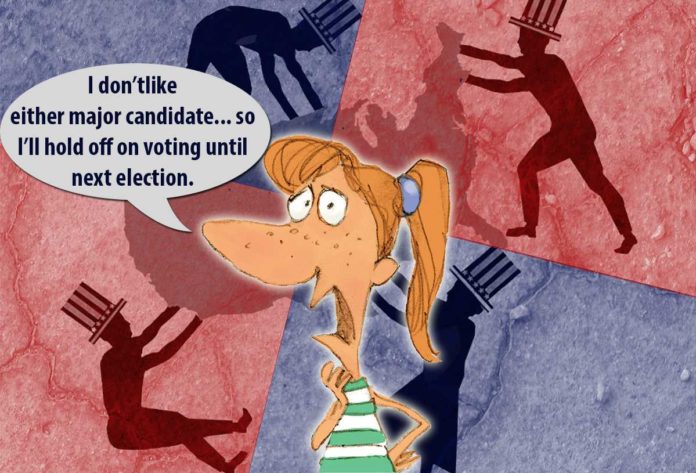The United States is currently in the midst of the most baffling and bizarre presidential election in its young history. Since many voters dislike both candidates, some citizens wonder if they should even bother voting at all. It has also sparked the discussion of whether or not our votes truly make a difference during the general election, since the votes that the candidates truly care about come from the electoral college. To kick off its Candid and Controversial discussion series, the SRU Women’s Center hosted a panel titled “Does Your Vote Matter?” which it discussed this very issue.
The electoral college consists of 538 electors, and a majority of 270 electoral votes is required to be selected as the next president of the United States. Each candidate in each state has its own group of electoral voters, usually selected by the candidate’s political party. Most states have a “winner-takes-all” style, where the majority vote within the state will give all of its electoral votes to that particular candidate. Some states split up the electoral votes, but Pennsylvania is usually known for allocating its entire amount of electoral votes to the state’s winning candidate.
Although the majority of Slippery Rock students were too young to truly recall the 2000 election between George W. Bush and Al Gore, it’s a prime example of how the electoral college system could take away the value the average voters power in the general election. In fact, Gore actually won the majority vote in that election year, but Bush campaigned heavily in the right regions to ensure he won the states that had the most electoral votes. As a voter, it’s easy to feel like your vote truly didn’t make a difference, because some states are historically red or blue, and there’s really nothing that can be done to change it. So basically, if you live in a state that is dominated by a particular party, your vote is basically ignored in the general election, especially if you voted for the candidate opposite of that party.
Despite some of the problems that an electoral college could bring, it’s still necessary as a citizen to utilize your right to vote. There is a small amount of pride inside of you when you show up to your designated election site and voting for your preferred candidate. It may not feel like you’ve made an impact immediately, but if this upcoming election does end up being as close as we anticipate, you dedicating your time and voting for your preferred candidate could sway whether your state turns red or blue, and that could truly make a difference, especially this year.







